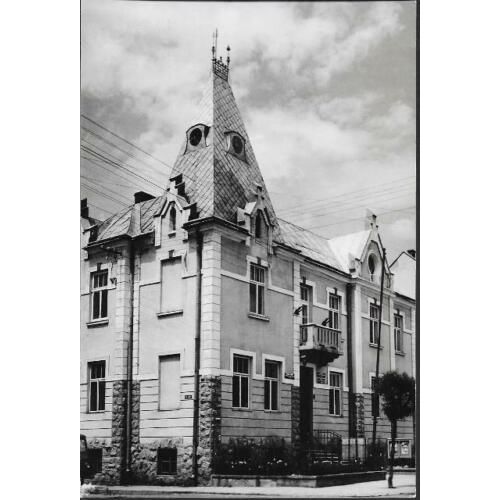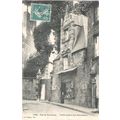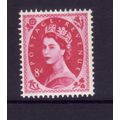Dukla, Poland - Siedziba Miejskiej Rady Narodowej - RP postcard c.1960s
- Condition : Used
- Dispatch : 2 Days
- Brand : None
- ID# : 182525446
- Quantity : 1 item
- Views : 202
- Location : United Kingdom

- Seller : justthebook (+1704)
- Barcode : None
- Start : Mon 10 Jun 2019 21:56:10 (BST)
- Close : Run Until Sold
- Remain : Run Until Sold
More Listings from This Seller view all
Seller's Description
- Postcard
- Picture / Image: Dukla [Poland] - Siedziba Miejskiej Rady Narodowej
- Publisher: Biuro Wydawnicze 'Ruch'
- Postally used: no
- Stamp: n/a
- Postmark(s): n/a
- Sent to: n/a
- Notes / condition:
Please ask if you need any other information and I will do the best I can to answer.
Image may be low res for illustrative purposes - if you need a higher definition image then please contact me and I may be able to send one. No cards have been trimmed (unless stated).
------------------------------------------------
Postage & Packing:
Postage and packing charge should be showing for your location (contact if not sure).
No additional charges for more than one postcard. You can buy as many postcards from me as you like and you will just pay the fee above once. Please wait for combined invoice. (If buying postcards with other things such as books, please contact or wait for invoice before paying).
Payment Methods:
UK - PayPal, Cheque (from UK bank) or postal order
Outside UK: PayPal ONLY (unless otherwise stated) please. NO non-UK currency checks or money orders (sorry).
NOTE: All postcards are sent in brand new stiffened envelopes which I have bought for the task. These are specially made to protect postcards and you may be able to re-use them. In addition there are other costs to sending so the above charge is not just for the stamp!
I will give a full refund if you are not fully satisfied with the postcard.
----------------------------------------------
Text from the free encyclopedia WIKIPEDIA may appear below to give a little background information (internal links may not work) :
*************
Dukla [ˈdukla] is a town and an eponymous municipality in southeastern Poland, in the Subcarpathian Voivodeship. The town is populated by 2,127 people (02.06.2009).[1] while the total population of the commune (gmina) containing the town and the villages surrounding it is 16,640.[1] The total area of the commune is 333.04 square kilometres (128.59 sq mi). Dukla belongs to Lesser Poland, and until the Partitions of Poland it was part of BieczCounty, Kraków Voivodeship.
The town lies on the Jasiołka river, at the foot of the Cergowa mountain (716 meters above sea level), in the Low Beskids. Dukla is located south of Krosno, along European route E371, which goes from Radom to Presov. The Dukla mountain pass is located in the Carpathians, a few kilometers south of the town, on the border with Slovakia and was a scene of a major battle in 1944.
First Slavic settlers appeared in the area of Dukla probably in the 5th or 6th century. It is not known which tribe settled here, and most probably, Dukla belonged for some time to Great Moravia, although it is not documented. Some time in the 10th century, Dukla was annexed by the early Polish state, ruled by the Polans. In the nearby village of Wietrzno there was a defensive gord, whose traces can still be seen.
The village of Dukla was first mentioned in documents from 1336. At that time, it was a private hands, belonging to the Suchywilk family. In 1373, Dukla received Magdeburg rights charter, and the town was part of Kraków Voivodeship. Dukla belonged to several noble families, such as the Cikowski, Ossoliński, Potocki, and Stadnicki. In 1474, the town was destroyed in a raid of Hungarian army of King Matthias Corvinus. In 1540, Dukla was purchased by Jan Jordan of Zakliczyn (Trąby coat of arms). The new owner expanded the Dukla Castle, and received from King Sigismund I the Old a privilege, allowing him to organize two fairs a year. Dukla remained in the hands of the Jordan family until 1600, and in 1595, King Sigismund III established here a customs office. In 1601, the town was sold to Andrzej Męciński, who died in the Polish–Muscovite War (1605–1618). In 1636, Dukla was sold to Franciszek Bernard Mniszech, the brother of Tsaritsa of All Russia, Marina Mniszech.
In the early 17th century, Dukla emerged as an important center of commerce, located on a trade route joining Poland with Hungary. The town had a defensive wall with two towers, and a town hall. Its merchants traded Hungarian wine, which at that time was very popular among Polish nobility. In 1638, Franciszek Mniszech began construction of a new palace, which was completed by his son Jan Mniszech. On January 2, 1656, during the Swedish invasion of Poland, King John II Casimir came to Dukla, on his way from Silesia back to the occupied country. One year later, on March 16, 1657, Dukla was destroyed and looted by Transilvanian army of George II Rakoczi. After the wars, the town declined. Furthermore, Dukla was again destroyed in the Great Northern War, and its wooden houses burned in 1724, 1725, 1738, and 1758.
Listing Information
| Listing Type | Gallery Listing |
| Listing ID# | 182525446 |
| Start Time | Mon 10 Jun 2019 21:56:10 (BST) |
| Close Time | Run Until Sold |
| Starting Bid | Fixed Price (no bidding) |
| Item Condition | Used |
| Bids | 0 |
| Views | 202 |
| Dispatch Time | 2 Days |
| Quantity | 1 |
| Location | United Kingdom |
| Auto Extend | No |




 for 1 item(s)
for 1 item(s)

















